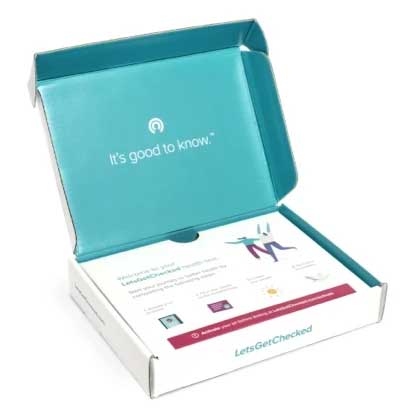Definition
Herpes is a common viral STD and is caused by two types of virus. Herpes simplex type 1 (hsv-1), which causes oral herpes and Herpes simplex type 2 (hsv-2) which causes genital herpes. Viral STDs like herpes have no cure.
Symptoms
Signs & Symptoms of Herpes
HSV-1
- Cold sores around the mouth
HSV-2
- Blisters that turn into red open sores around the vagina, penis or anus
- Itching and burning around the genitals
- A stinging sensation when you pee
- Abnormal vaginal discharge – See colors of vaginal discharge
Symptoms can stay silent for years and once contracted infected patients are prone to outbreaks that need to be managed and treated
Treatment
How Is Herpes Treated?
There’s no cure for herpes and it is regarded that most outbreaks can heal with basic managed treatment. There are creams that can be used to manage the irritation and pain of outbreaks and that's normally enough to treat each case.
If symptoms do worsen, even with basic managed care or they become more painful during an outbreak, anti-viral medication can be prescribed.
Infection
How Do You Get Herpes?
Skin-to-skin contact during vaginal, anal and oral sex is the most common way of contracting herpes. Outbreaks cause infections to occur in areas around the genitals and mouth (oral herpes). These infected areas may not show signs or symptoms in the early stages, but while they develop, they will still carry the virus.
So even with no visible symptoms, a person carrying the infection can pass on the virus through intimate skin-to-skin contact. This also includes fingers that have been in contact with the infection, as is common in normal intimate activity.
Sharing sex toys also poses a risk of passing herpes along with other STDs
How is a Herpes Outbreak Triggered?
- Poor health
- Drinking alcohol & smoking
- UV light sunbeds and over-exposure to sunlight
- Irritation to the skin, like restrictive sweaty gym wear
- Other illnesses affecting the immune system
- Stress
Risks
Is herpes serious?
Herpes is very common and might not be considered the most serious of STDs. However, it is highly disruptive for the person carrying the virus causing visible symptoms that can be unsightly and unpleasing to others.
Whilst the virus can be managed relatively easily, there are strong suggestions according to the World Health Organisation that those infected with herpes would be more likely to catch HIV through open sores if they come into contact with the virus.
Diagnosis & Detection
How is herpes detected?
Diagnosing herpes needs to be carried out through a sexual health test either in person through a sexual healthcare practitioner, a walk-in lab testing center, or an at-home STD testing company.
A healthcare practitioner might carry out a visual examination of any sores and needs to swab an open blister to sample the infection. Herpes can go undetected for long periods of time. Samples need to be taken during outbreaks where the skin has been broken through an open sore.
Blood tests can be administered to detect virus antibodies, which evidence the presence of the virus as the immune system reacts to infection.

LetsGetChecked – Herpes Test
Herpes Test detects herpes simplex virus antibodies in your blood. This test will detect antibodies to HSV-I and HSV-II. Antibodies typically take 4-12 weeks to appear after exposure to the infection, however, it can take up to 16 weeks. More LetsGetChecked STD Tests
$119.00

myLAB Box – Herpes Test
Genital Herpes Testing Kit specifically screens for genital herpes HSV-2. This test kit is a popular option for those who think or know that they have been in contact with this infection. More myLAB Box STD Tests
$89.00
Other Types
Are There Other Types Of Herpes?
Neonatal herpes – An infection passed onto the baby during birth. If you have an outbreak of genital herpes during pregnancy, there's a risk the baby could develop this serious infection. Most babies recover with treatment, but it can be fatal if untreated.
Prevention
How Do You Prevent Herpes?
You prevent herpes like with any other STD, by being responsible and wearing protection during sex in the form of a condom. But also by being honest with your sexual partners about your sexual history and being responsible during outbreaks and avoiding intimate contact until the outbreak is gone.








